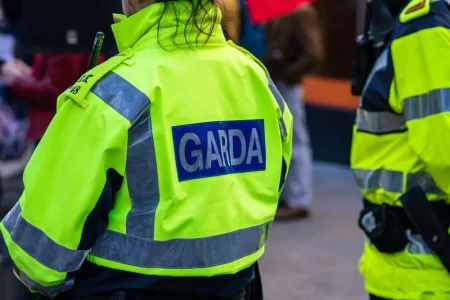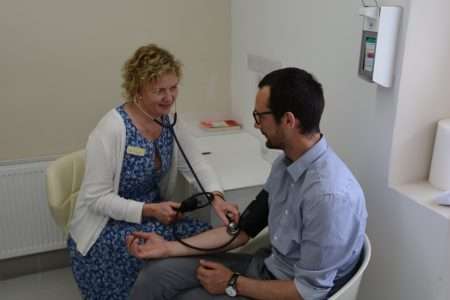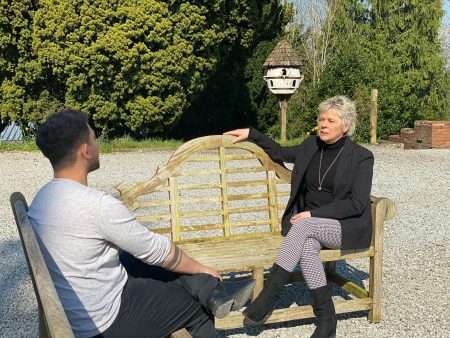When someone you love is struggling with some form of addiction – alcohol, another substance use disorder, or some other behaviour such as gambling, it can be hard to know the best course of action, especially if they are themselves in denial about the situation. Family members and friends, too, can sometimes be in denial […]
Addiction Resources
Menopause and Addiction: Understanding the Link with Alcohol and Drugs
Many women in Ireland going through menopause experience emotional and physical symptoms that can be difficult to manage, from low mood and anxiety to poor sleep and brain fog. For some, these challenges can lead to unhealthy coping mechanisms, such as drinking alcohol more frequently or using medication or drugs to get through the day. […]
Addiction Treatment for Security, Defence and Law Enforcement in Ireland
People working in security, defence and law enforcement in Ireland often manage high levels of stress that most people don’t experience in their daily working lives. Working long shifts, exposure to trauma and critical incidents, returning from military service abroad and maintaining control in unpredictable situations, with limited space to process it all, can lead […]
What Are The Dangers and Penalties of Drink Driving?
Is drink driving ever safe? What are the dangers of drink driving? As alcohol affects everyone differently, the answer to this question is ‘No.’ The only truly safe option when you’re driving is to completely avoid drinking alcohol, as it’s difficult to know how much alcohol could put you over the limit and cause a […]
Could Alcohol and Drug Rehab in Dublin, Ireland Be Easier Than You Think?
Attending an alcohol and drug rehab center in Dublin, Ireland may not be the first option that comes to mind, but it’s one that’s quietly gaining traction for a lot of Americans. In the U.S., many people face long waitlists, steep costs, and the constant frustration of navigating insurance restrictions. For people seeking immediate, world-class […]
Mixing Cocaine and Alcohol: Understanding Cocaethylene and Its Risks
Mixing cocaine and alcohol can have dangerous consequences. Combining a stimulant drug, like cocaine, with a depressant, like alcohol, increases the risk of unpredictable and adverse effects, largely due to the production of a toxic compound called cocaethylene. Cocaethylene can permanently damage the heart, liver and other major organs in the body.1,2 In this article, […]
What Is the Cost of Rehab? Understanding the Investment in Recovery
Is private rehab expensive? What factors determine the cost of rehab? How do different programmes for addiction treatment compare? Learn more about the cost of rehab and what to expect. Why Understanding Rehab Costs is Important Attending an addiction rehab centre is widely recognised as one of the most effective ways to overcome addiction. Yet, […]
Diazepam Addiction Signs, Withdrawal & Treatment
In the era of modern medicine, Diazepam, or Valium as it’s more commonly known, has become a double-edged sword. As relief from anxiety, muscle spasms, or seizures, diazepam was a regularly prescribed drug despite the potential for dependence. Although it is still prescribed, most GPs will not provide a course for longer than 7 days. […]
How To Tell If Someone Is On Speed
Speed is a powerful stimulant drug that affects the central nervous system, leading to increased energy, alertness, and euphoria. You can recognise when someone has taken this amphetamine by their sudden burst of energy, erratic behaviour and unusual agitation. It is useful to know the effects speed has on individuals, as prolonged or excessive use […]
The Disease Model of Addiction: Is Addiction a Disease?
When people refer to addiction as a disease, they are acknowledging that addiction is a complex medical condition characterised by changes in brain function and structure. This perspective, known as the disease model of addiction, views addiction as a chronic and relapsing disorder that involves compulsive drug-seeking and use despite harmful consequences. The disease model […]
Addictive Personality Disorder: Myth or Reality?
The concept of an “addictive personality” has permeated popular culture with its suggestion that some individuals possess a particular set of traits that predispose them to addiction. But is there scientific evidence to support the idea of an addictive personality type, or is it more myth than reality? Opinions vary widely among experts, but most […]
15 Celebrities Who Recovered from Alcoholism
Well-known actors, musicians and public figures have fought addiction and shared their stories with the world. Their stories, filled with both despair and triumph, prove that recovery isn’t just a distant dream but a reachable reality. 1. Bradley Cooper Known for his dynamic roles and compelling performances, Bradley Cooper’s battle with addiction began early in […]










